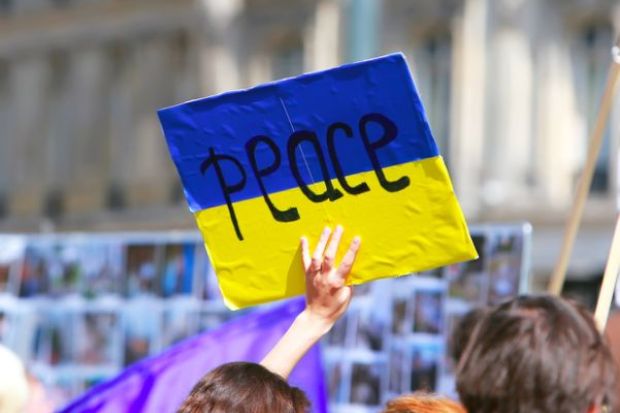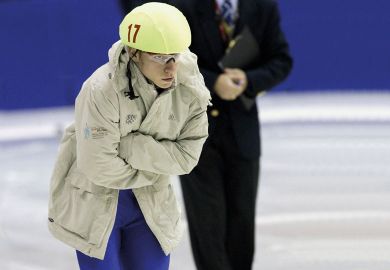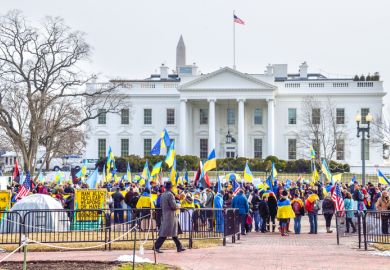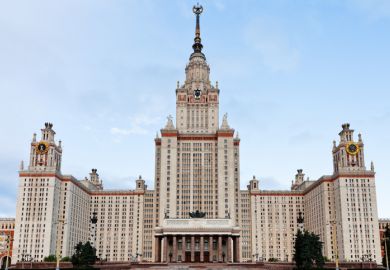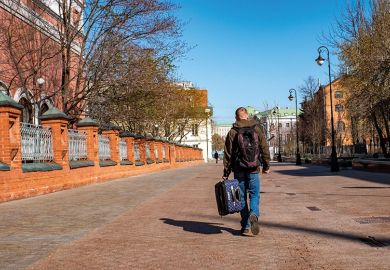A group of prominent Western academics has entreated Russian scholars to oppose their country’s war on Ukraine.
Dozens of faculty at top US and European institutions have signed the letter, including Nobel prizewinner and Harvard University economics professor Eric Maskin, and American political scientist and author Francis Fukuyama.
“We have learned that your media are telling Russians that we in the West want Russia to become an underdeveloped Third World nation,” they write.
“This is the opposite of the truth. In the 21st century, national greatness comes from harnessing the human mind to help humanity.”
Their open letter comes one day shy of a month since Russia invaded Ukraine. In that time, the academic community has moved quickly to condemn the war, with scholars in and outside of Russia penning petitions and letters.
But not all of them have denounced the war. Russia’s largest organisation of rectors backed the Kremlin’s official line on Ukraine, supporting what has become an increasingly bloody invasion. More than 180 signatories, with heads of top Russian institutions, such as Moscow State University and Saint Petersburg State University, urged support for Russian president Vladimir Putin and his troops.
Still, rarely have authors appealed directly to their academic counterparts. In the new letter, academics led by Stanford University professor Martin Carnoy address their academic colleagues in Russia and urge them not to buy into the Kremlin’s propaganda – and to speak out against “anachronistic nationalism”.
“We must work together to assure that military might, used indiscriminately to foster such nationalism, as Russia is now doing in Ukraine, has no place in today’s world and no longer has a place in defining what makes nations great. And difficult as it may be, today this means working together to end the bloodshed in Ukraine.”
Their call to work “together” comes amid a freeze on academic collaboration, with numerous organisations cutting ties with their Russian counterparts in recent weeks.
The authors end by reassuring their audience: “We want to continue to collaborate with you, to exchange ideas, and to work together to build a better world for everyone.”
Register to continue
Why register?
- Registration is free and only takes a moment
- Once registered, you can read 3 articles a month
- Sign up for our newsletter
Subscribe
Or subscribe for unlimited access to:
- Unlimited access to news, views, insights & reviews
- Digital editions
- Digital access to THE’s university and college rankings analysis
Already registered or a current subscriber? Login
